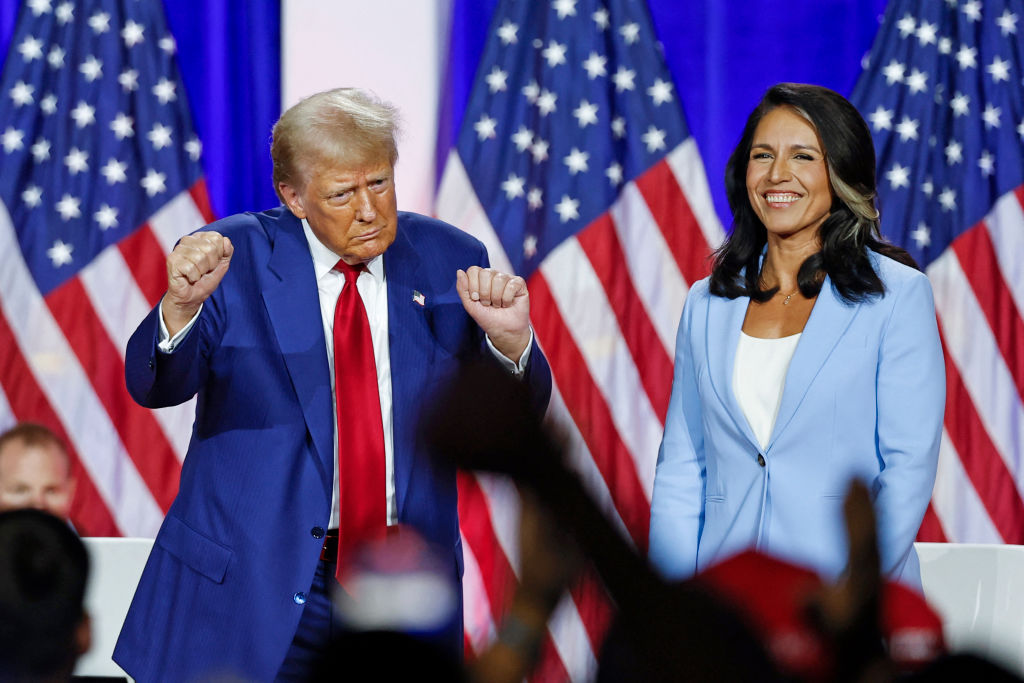Donald Trump is surprising even his most ardent fans. The President-elect’s nomination of Rep. Matt Gaetz to serve as attorney general managed to catch the MAGA faithful off guard on Wednesday afternoon. One senior House GOP staffer told UnHerd the reaction was “Veep-ish” when asked about the mood behind the scenes.
Gaetz is liked by Trump’s hardcore base but much less popular in DC — not just with the establishment, but also with MAGA-aligned members of Congress. This is more for personal reasons than ones related to policy, which will come as no surprise to those who’ve followed his rapid ascent to the top of the conservative movement. Despite Gaetz’s heterodox tendencies, the Congressman carries the baggage of an ongoing House ethics investigation — which he says is politically motivated, but was at the very least brought about by his penchant for hard partying.
Trump’s roster of deputies is shaping up to be just as weird as the eclectic coalition that delivered him the presidency. It’s true that his national security picks are, as a whole, more hawkish than most of the GOP base at this point, but Trump followed up his nomination of Marco Rubio as secretary of state by picking Tulsi Gabbard as his director of national intelligence. While Pete Hegseth’s foreign policy may have evolved in the years following his deployments to Iraq and Afghanistan, he’s also likely to seek major structural reforms that will infuriate the Pentagon establishment. They may not be successful, but if he’s confirmed they’ll surely be on the table.
Does Trump actually think Matt Gaetz can survive a confirmation? Is the plan to sneak him into the cabinet with a recess appointment, leave him as an acting AG without formal confirmation, or use a fight he’ll inevitably lose for political purposes? The same questions could be asked about his nominations of Hegseth and Gabbard, both of whom will undoubtedly face uphill confirmation battles.
So Trump kept Elon Musk out of it. On Tuesday night, Trump announced that Musk and Vivek Ramaswamy would head up a new Department of Government Efficiency — dubbed DOGE for the memes — that will operate outside the Government while collaborating with the White House and Office of Management and Budget. While the specifics of the arrangement are still unknown, this allows both men — but especially Musk — to keep their business interests entirely intact and skirt any regulation meant to crack down on conflicts of interest.
Musk, for example, can maintain his work as the head of the world’s most consequential companies — some of which are major defence contractors and recipients of Government subsidies — while potentially recommending big cuts that advance his own bottom line and hurt his competitors. On the other hand, it’s likely that his ability to actually make cuts will only come in the form of recommendations without the weight of formal power. Trump pitched himself back in 2016 as the right man for the presidency in part because he’d partaken in the corrupt system, and it’s possible Musk can make a similar argument.
DOGE sounds a bit like MAGA McKinsey, a redundant effort to root out redundancy, but the federal government is in desperate need of streamlining, so Musk and Ramaswamy will have plenty to work with on that front. Trump’s blizzard of major personnel decisions has been predictably eclectic, but with Gabbard really the only major sceptic of the foreign policy establishment and Musk and Ramaswamy pushed to the outside, the influence of Donald Trump Jr, Tucker Carlson, and Robert F. Kennedy Jr seems less powerful than it might have been.
One source with knowledge of the transition told me that Trumpworld “didn’t entirely trust” Gabbard ahead of her nomination. The outcome of this intense push and pull, giving one group a little to take from another, could be what Trump ultimately wants: a close circle full of significant disagreement that, as he sees it, is like iron sharpening iron. Or, then again, it could just be a mess.











Join the discussion
Join like minded readers that support our journalism by becoming a paid subscriber
To join the discussion in the comments, become a paid subscriber.
Join like minded readers that support our journalism, read unlimited articles and enjoy other subscriber-only benefits.
Subscribe